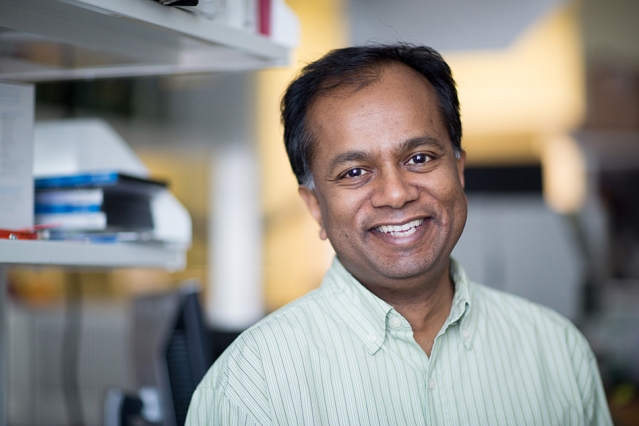CAMBRIDGE, MA–MIT professor Ram Sasisekharan denied that he has claimed others’ scientific discoveries as his own.
Prof. Sasisekharan made his name on the idea that algorithms and computer models could lead to better and more potent therapies, a promise that launched three biotech companies and attracted hundreds of millions of dollars, reported STAT+.
“But two treatments purportedly discovered with Sasisekharan’s computational approach are almost identical to compounds that had previously been described by other labs, according to a new paper by outside researchers. The finding casts serious doubts on the integrity of Sasisekharan’s research, the authors claim,” said STAT+.
“We looked at exactly two cases, and in both did we find irregularities,” STAT+ quoted Tillman Gerngross, CEO of the private biotech firm Adimab and a co-author of the paper, as saying. “To me, if you’re sitting in the kitchen and two fat cockroaches walk across the floor, what’s the chance that there’s only two?”
In a paper published Monday in the journal mAbs, Gerngross and his Adimab colleagues said two antibody therapies described by Sasisekharan’s lab — one for influenza and one for Zika virus — “show striking similarities” to the past work of other scientists, STAT+ said.
In an email to STAT+, Prof. Sasisekharan said the paper was “inaccurate and slanderous.” There are “fundamental differences” between the Zika antibody he discovered and the one published in 2016, he said. And the influenza therapy in question was designed by Visterra, a biotech company he co-founded, not by Sasisekharan himself, STAT+ quoted him as saying.
In a statement to STAT+, an MIT spokeswoman said that “while federal regulations and MIT policy do not allow us to comment on any particular matter, research integrity at MIT is paramount. MIT has policies and confidential processes in place to assess concerns that might be raised.”
In 2017, Prof. Sasisekharan received Agilent Thought Leader Award in recognition of his contributions in the field of biologics characterization.
Sasisekharan, the Alfred H. Caspary Professor of Biological Engineering and Health Sciences and Technology in the Department of Biological Engineering and a member of MIT’s Koch Institute for Integrative Cancer Research, employs multidisciplinary strategies to develop and integrate technologies to further study complex polysaccharides important to a host of disease processes, according to MIT News.














